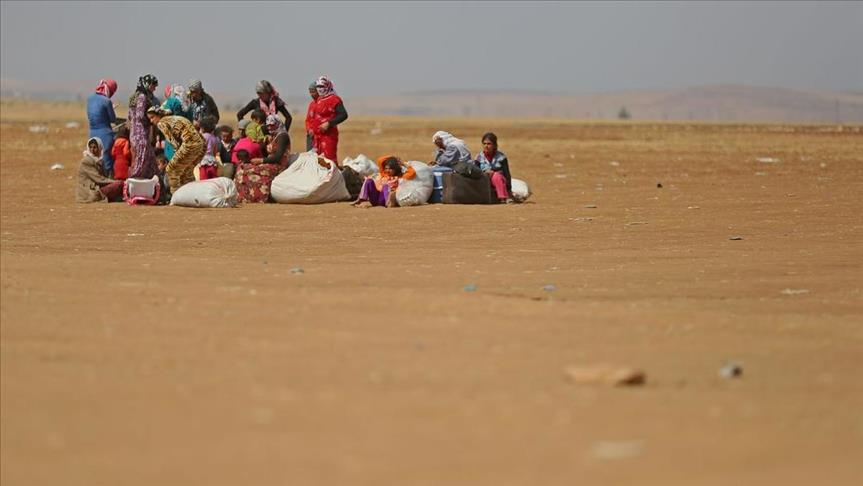Pregnant Iraqi asylum seeker pleas for Australian help
Medical experts fear for safety of unborn child of pregnant diabetic Kurdish asylum seeker being refused access to Australian facilities

Victoria
By Jill Fraser
MELBOURNE
A heavily pregnant diabetic asylum seeker being held on the Pacific island of Nauru says she fears for the life of her unborn child because she is being refused access to Australian medical facilities.
Doctors said Friday that they hold serious concerns for Kurdish-Iraqi woman Hatami (her surname is being withheld) and are calling for her to be urgently transferred to Australia to give birth.
"The [Australian Immigration] minister must stop playing with people's lives by being inflexible with the government's hard-line stance on asylum seekers," Australian Medical Association President Brian Owler said in a statement.
“It is time for the minister to show some humanity and compassion and fly this desperate woman to Australia for appropriate care.”
The ABC has reported that medical experts are saying that Nauru -- which houses an Australian offshore asylum seeker processing centre dealing with Hatami's claim -- lacks the medical facilities needed to treat a difficult pregnancy.
According to the World Health Organisation, it has a neonatal mortality rate (number of deaths within 28 days per 1,000 live births) of 21, while Australia’s rate is three per 1,000.
But medical authorities are refusing to transfer the 34-year-old, who is now 40 weeks pregnant.
In a statement sent to Anadolu Agency, a spokesperson for the Department of Immigration and Border Protection maintained “All appropriate support is being provided to this woman.”
Australian Medical Association President Owler, however, maintains that the baby needs specialized neonatal care.
“The Government must put human lives, human rights, humanity, and proper health services for asylum seekers ahead of inhumane policies,” he said.
Meanwhile, attempts have been made by medical providers on Nauru to recruit outside help.
One Melbourne-based neo-natal specialist, Dr. Andrew Watkins, told the ABC he has been contacted and that the short notice troubled him.
Watkins said that the approach was made via his page on the social media site, LinkedIn.
His response was that if the baby needed intensive care it could not be safely provided on Nauru.
Refugee Coalition Action's Ian Rintoul says he has spoken recently to Hatami and her husband Rashid. The couple also have a four-year-old child.
Rintoul told Anadolu Agency on Friday that they both expressed extreme fear and concern about the impending birth and the complications that could occur.
“The three of them were transferred to Nauru from Christmas Island on 15 May 2014,” Rintoul said.
“It became very obvious very early on that there was a problem with the pregnancy. She was a diabetic when she became pregnant and she knew the level of pain she was experiencing and the way she is carrying this baby isn’t normal."
Rashid wrote to International Health and Medical Services, the Immigration Department and the detention managers on Nauru, Transfield, at least three times in September calling for help for his wife, but his appeals were ignored.
In a statement sent to Anadolu Agency, Greens Immigration Spokesperson Senator Sarah Hanson-Young said there are at least three women, including Hatami, on the island who are in the late stage of high-risk pregnancy and should be brought to Australia immediately for appropriate care.
“These women and their babies are not safe on Nauru,” Hanson-Young said.
“The Immigration Department is scrambling, trying to find an Australian specialist who will go and treat these women on Nauru, but so far they have all refused because the appropriate level of care cannot be secured on the island.
“These expectant mothers, who have complicated pregnancies due to medical conditions, need specialized care that is only available in Australia.”
Many Iraqi Kurds seeking asylum oversees do so on the grounds that they face persecution from groups such as Daesh back home, however one group -- the minority Yazidi community -- may have been subject to genocide.
An Office of the High Commissioner for Human Rights (OHCHR) report released in March says Daesh attacks on the Yezidi population “pointed to the intent of ISIL [Daesh] to destroy the Yezidi as a group", which “strongly suggests” genocide.
It detailed Yezidi populations being rounded up, men and boys over the age of 14 separated from women and girls, and the men then led away and shot while the women were abducted as the "spoils of war".
“In some instances,” the report found, “villages were entirely emptied of their Yezidi population”.
Anadolu Agency website contains only a portion of the news stories offered to subscribers in the AA News Broadcasting System (HAS), and in summarized form. Please contact us for subscription options.







